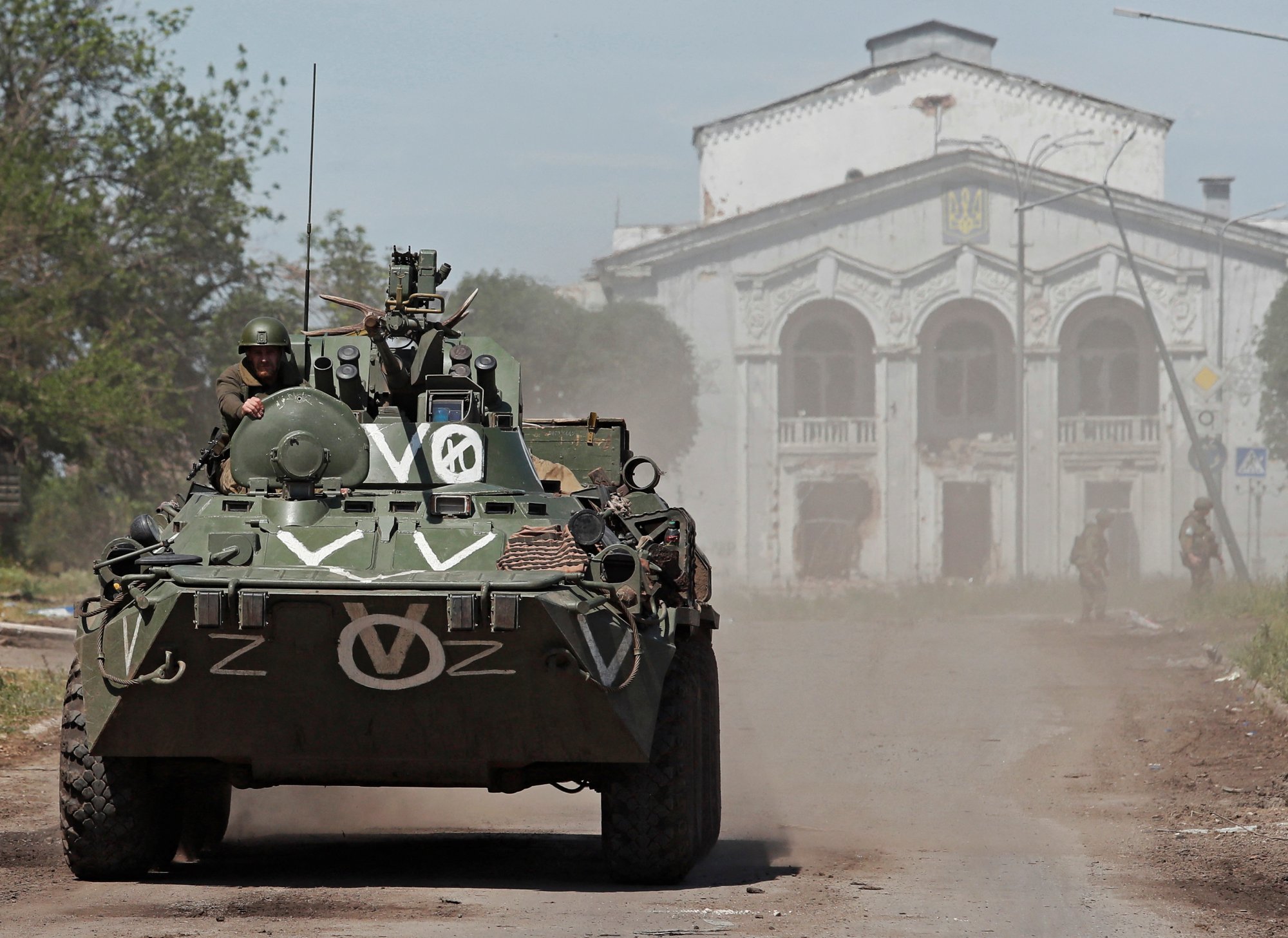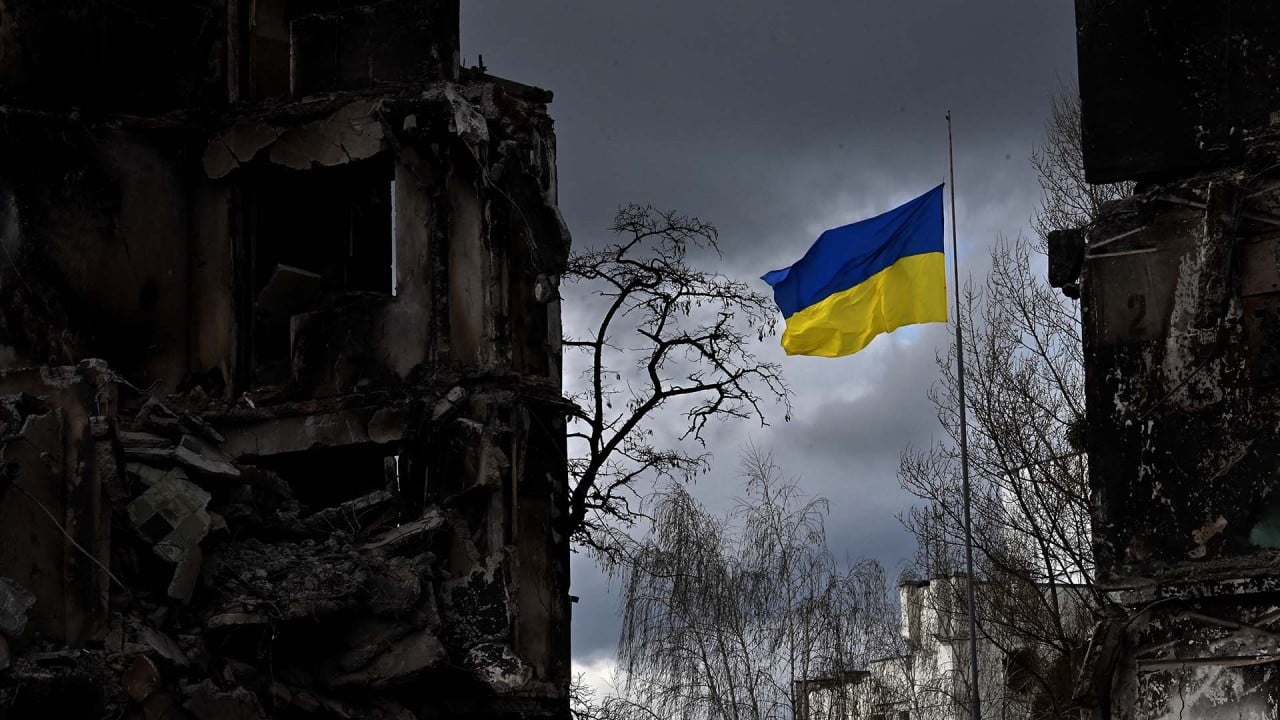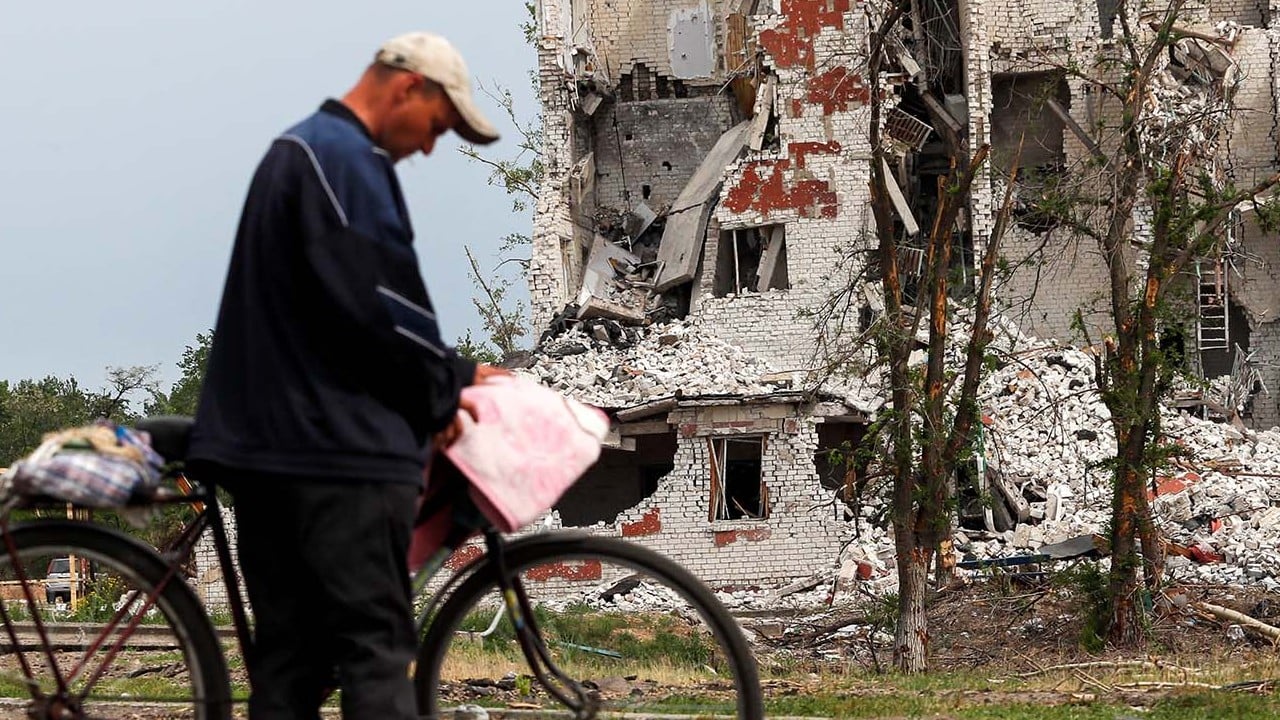
Ukraine’s Volodymyr Zelensky vows victory on 100th day of Russian invasion
- Putin made a ‘historic and fundamental error’ in starting the war, France’s Macron declares, but warns the Russian leader must not be ‘humiliated’
- However, a Kremlin spokesman said ‘certain results have been achieved’, pointing to the ‘liberation’ of some areas from Kyiv’s control
Ukrainian President Volodymyr Zelensky vowed victory on the 100th day of Russia’s invasion on Friday, even as Russian troops pounded the eastern Donbas region.
Thousands of people have been killed, millions sent fleeing and towns turned into rubble since Russian President Vladimir Putin ordered his troops into Ukraine on February 24.
Russia’s advance has been slowed by a fierce Ukrainian resistance which repelled them from around the capital and forced Moscow to shift its aims towards capturing the east.
“Victory will be ours,” Zelensky said in a video address similar to one he posted at the onset of the war outside government buildings in Kyiv.

But Kremlin spokesman Dmitry Peskov said: “certain results have been achieved”, pointing to the “liberation” of some areas from what he called the “pro-Nazi armed forces of Ukraine”.
The West has sent ever more potent weapons to Ukraine and piled on ever more stringent sanctions, with the European Union also on Friday formally adopting a ban on most Russian oil imports.
Putin’s alleged girlfriend, former gymnast Alina Kabaeva, was also added to an assets freeze and visa-ban blacklist, along with Russian army personnel suspected of war crimes.
At the same time, the United Nations said it was leading intense negotiations with Russia to allow tens of millions of tons of grain to leave Ukrainian ports to avert a global food crisis.
Putin says ‘no problem’ to export grain from Ukraine, amid food crisis fears
“I am optimistic that something could give in, something could be made,” said Amin Awad, the UN crisis coordinator for Ukraine, voicing hope that we could “see a breakthrough”.
Putin in a televised interview late Friday said there was “no problem” to export grain from Ukraine, via Kyiv- or Moscow-controlled Ukrainians ports or even via central Europe.
The UN has warned that especially African countries, which imported more than half of their wheat consumption from Ukraine and Russia, face an “unprecedented” crisis caused by the conflict.
Food prices in Africa have already exceeded those in the aftermath of the 2011 Arab springs and the 2008 food riots.
On Friday, Putin met the head of the African Union, Senegalese President Macky Sall, at his Black Sea residence in Sochi. Sall told Putin that African countries “are victims” in the Ukraine conflict.
And after the meeting, Sall said he was “very reassured”, adding the Russian leader was “committed and aware that the crisis and sanctions create serious problems for weak economies”.
France’s President Emmanuel Macron, meanwhile, declared Putin had “made a historic and fundamental error” in starting the war.
But he said he should not be “humiliated … so that the day the fighting stops we can pave a way out through diplomatic means”.
Biden says US to send rockets to Ukraine, not seeking Putin’s ouster
Putin’s troops are now concentrating in the Donbas, in the east, where some of the fiercest fighting is centred on the industrial hub city of Sievierodonetsk.
Fighting continues in Sievierodonetsk’s city centre, the president’s office said, adding that the invaders were “shelling civilian infrastructure and Ukrainian military”.
“For 100 days, they have been levelling everything”, Luhansk regional governor Serhiy Gaidai said on Telegram.
A driver transporting two Reuters journalists in eastern Ukraine was killed and the two international news agency reporters lightly wounded, a company spokesperson said. The agency said the group was travelling “in a vehicle provided by the Russian-backed separatists and driven by an individual assigned by the separatists”.
The French foreign ministry also on Friday said a French volunteer fighter in Ukraine had been killed in combat, following reports that the man died in artillery fire in the neighbouring Kharkiv region.
In areas around the capital Kyiv which Russian troops retreated from at the end of March, some residents are still in desperate need.
At an aid distribution point in Horenka, northwest of Kyiv, a tearful Hanna Viniychuk, 67, said she had come for some basic necessities after losing her home in a Russian bombardment. “I’m grateful for this help,” she said.
Ukrainian troops were still holding an industrial zone, Gaidai said, a situation reminiscent of Mariupol, where a steelworks was the south-eastern port city’s last holdout until Ukrainian troops finally surrendered in late May.
In 100 days, Russia’s invasion of Ukraine turns to war of attrition
The situation in Lysychansk – Sievierodonetsk’s twin city, which sits just across a river – also looked increasingly dire.
About 60 per cent of infrastructure and housing had been destroyed, while internet, mobile network and gas services had been knocked out, said the city’s mayor Oleksandr Zaika. “The shelling is getting stronger every day,” he said.
In the city of Sloviansk, about 80km (50 miles) from Sievierodonetsk, the mayor has urged residents to evacuate as bombing intensified with water and electricity cut off.
Student Gulnara Evgaripova, 18, recounted heavy bombardments as she boarded a minibus to leave the city. “The situation is getting worse,” she said.
Ekaterina Perednenko, a paramedic, said: “I am scared that there will be nothing to come back to.”

.png?itok=arIb17P0)

